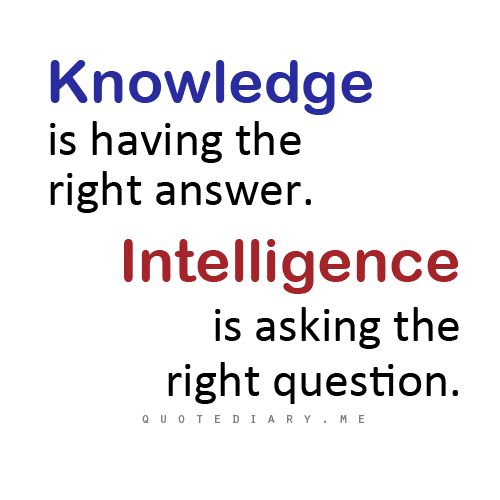
Knowledge and intelligence are two different concepts that are often confused with each other. While the two terms have similarities and overlap in some ways, they are distinct and unique. Knowledge refers to the information that a person has accumulated over time, while intelligence is the ability to think, reason, and solve problems. In this essay, we will explore the differences between knowledge and intelligence. Knowledge is attributed to learning, however, intelligence is reflected in the ability to effectively problem solve.
Knowledge is the accumulation of information that a person has acquired over time through learning, observation, and experience. It can be practical, theoretical, or factual, and can be obtained from various sources, such as books, the internet, or through conversations with others. Knowledge is essential for any individual to function in society and perform specific tasks. It is a result of a conscious effort to learn, memorize and store information in one’s memory. Knowledge can be objective, subjective, relative, or absolute depending on the source of information and a person’s individual experience.
Intelligence, on the other hand, is the ability to think critically, solve problems, comprehend complex ideas, learn from experience, and adapt to new situations. It is the capacity to understand the world and the ability to use knowledge for a specific purpose. Intelligence is not only about intellectual capacity but also involves social and emotional intelligence. Intelligence is an innate attribute of an individual that cannot be taught or learned easily. It is influenced by genetics, upbringing, environment, and experiences.
Although knowledge and intelligence share some similarities, they differ in significant ways. For example, knowledge is more concrete than intelligence, as it should be based on facts and actual information. Intelligence, on the other hand, is more abstract and involves cognitive abilities such as reasoning, problem-solving, and critical thinking. Knowledge is learned through education, and experience while intelligence is innate (we are born as smart as we will ever be), Encompassing thought processes and cognitive abilities.
Moreover, knowledge is quantifiable, while intelligence is not. One can measure how much a person knows through quizzes, tests, and other educational tools. However, intelligence is not so easily quantifiable as it involves more complex processes and abilities that cannot be accurately measured via traditional methods. Intelligence is a measure of a person’s ability to think and learn, but it is not always correlated with academic success.
In conclusion, knowledge and intelligence are two distinct concepts that often get confused with each other. Knowledge is accumulating information over time, while intelligence is the innate ability to think, reason, and solve problems. Knowledge can be acquired through education and experience, while intelligence is mostly innate but can be enhanced through practice and exposure to new situations. Both knowledge and intelligence are essential for personal and academic success, but they differ significantly in their nature and influence on an individual’s life.
While knowledge and intelligence are both important, they play different roles in our lives. Knowledge is necessary for success in academic and professional settings, as it allows us to understand and apply information. However, intelligence is equally important as it enables us to think critically and creatively, and to adapt to new situations. In fact, many successful individuals attribute their achievements not just to their knowledge, but also to their ability to think outside the box and come up with innovative solutions. Therefore, it is important to recognize the value of both knowledge and intelligence and to strive to develop and enhance both

